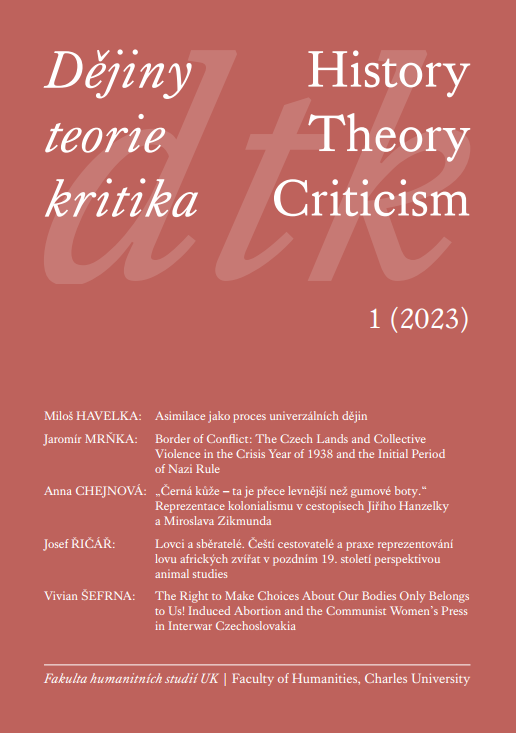Hunters and Collectors
Czech Travellers and the Practice of Representing African Animal Hunting in the Late 19th Century through the Perspective of Animal Studies
DOI:
https://doi.org/10.14712/24645370.3059Keywords:
Czech travelogues, representations of animals, hunting, collecting, colonialism, Sub-Saharan Africa, animal studiesAbstract
The study deals with the issue of the representation of animal hunting in Czech travelogues concerning Sub Saharan Africa in the last decades of the 19th century. The topic is examined in the context of the "conquest" and colonization of African nature and its symbolic and material appropriation by Europeans. The emphasis is laid particularly on the hunting of animals for inclusion in 'exotic' natural history collections. Thorough attention is paid to Emil Holub's travelogues, the scope of which is incomparable to other similar texts. Holub was keenly aware of the significance of animal hunting, and the subject of African nature was crucial to him. Nevertheless, this topic has remained rather on the sidelines of scholarly interest. Using the concepts of interdisciplinary animal studies, this study explores the meanings that hunting African animals had in the context of contemporary discourses, primarily those of collecting, but also those of biology and especially evolutionary biology. Attention is also paid to the specific position of Czech travelers within colonial power relations. Through hunting, collecting and commodification of animals, they too were involved in the European colonial conquest of Africa.


